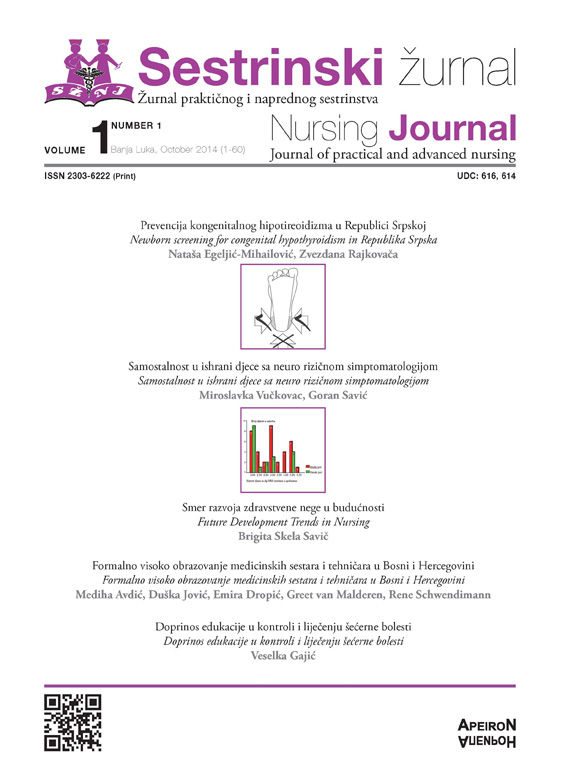Formal education of medical nurses in Bosnia and Herzegovina / Formalno visoko obrazovanje medicinskih sestara i tehničara u Bosni i Hercegovini
DOI:
https://doi.org/10.7251/SEZ0114025AAbstract
The health system and the education of health professionals in Bosnia and Herzegovina (BiH) is primarily focused on curative care and the provision of medical services, which limits the potential of the nursing workforce to respond to current and future health needs of the population. In order to solve these shortcomings are reflected in reduced competence and practice nurses launched a project to strengthen strinstva in BiH. Project leads a consortium made up of local and Swiss partners.
In order to analyze the quality of formal higher education of nurses / technicians in BiH, we performed an evaluation of the current situation in the field of higher education of nurses / technicians in BiH in order to identify similarities and differences in terms of implementation of the Bologna process, duration of study, professional competencies that are acquired and coordinate plans and programs with European standards.
The analysis included eight higher education institutions / colleges to study nursing and health care (five in FBiH, Sarajevo, Tuzla, Zenica, Mostar, Bihać and three public college in the RS: Banja Luka, Prijedor and Foča).
All surveyed higher education institutions offer of qualified graduate nurses / technicians, and graduate medical health care, regardless of whether it comes to a three-year or four-year degree program. In this first systematic study of initial state a large number of questions remained unanswered, and will obtain comprehensive and reliable picture of higher education of nurses and technicians in BiH would need further more detailed analysis.

